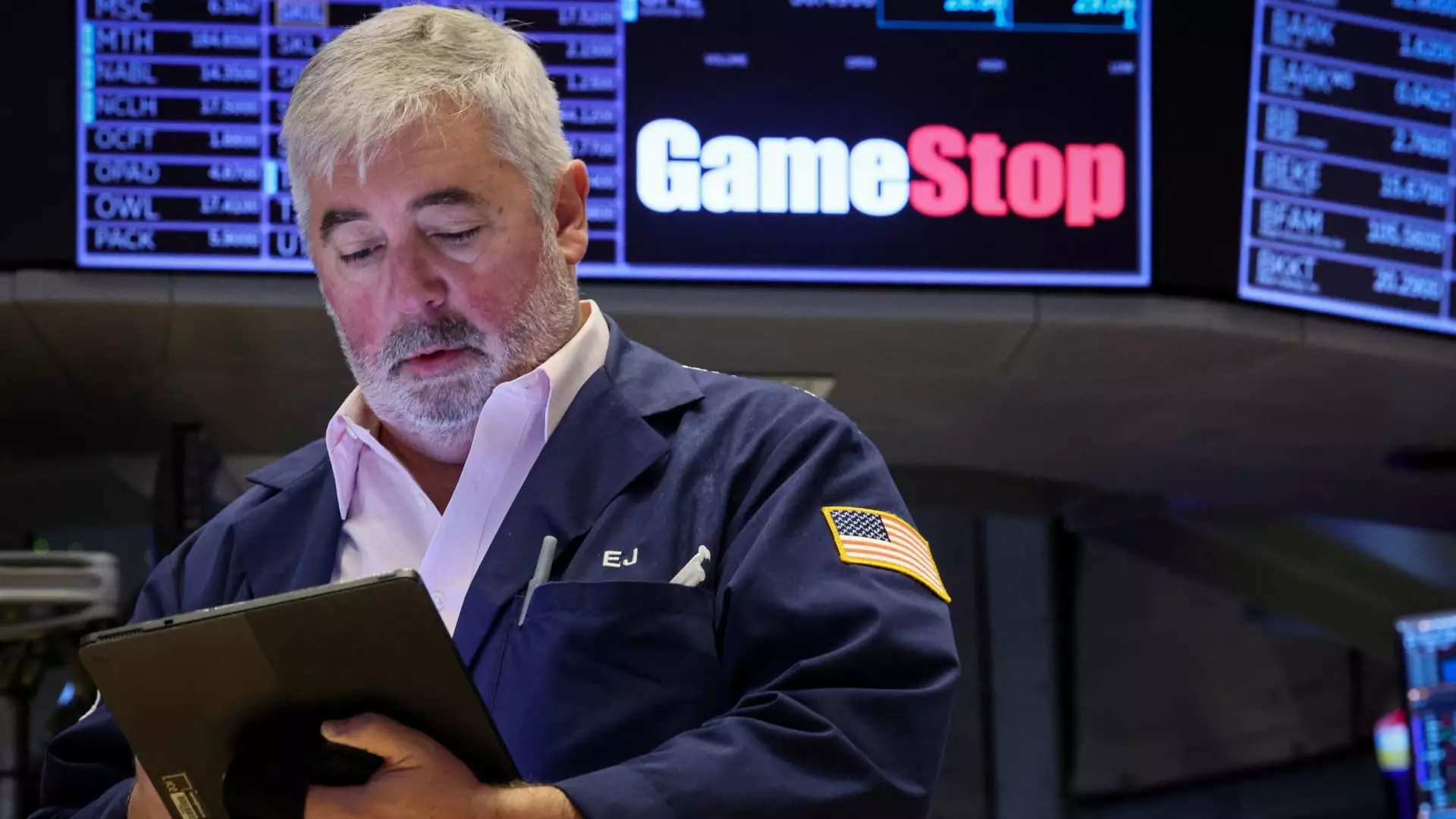In a bold yet bewildering move, GameStop has decided to pivot from its traditional retail roots to the volatile world of cryptocurrencies. Their recent announcement regarding the issuance of $1.3 billion in convertible senior notes for the purpose of acquiring Bitcoin raises serious concerns about the company’s strategic direction. To many, this undertaking appears reckless, especially given the already tumultuous nature of GameStop’s stock performance. A rapid 15% decline following a brief rally demonstrates the market’s skepticism, and rightly so. Companies should exercise caution and thorough analysis before diving into uncharted waters, particularly when they are already riding the rollercoaster of meme stock culture.
Echoes of MicroStrategy: A Doubtful Imitation
GameStop’s corporate board seems to be echoing the strategies of MicroStrategy, a company that has gained notoriety for its aggressive Bitcoin purchases. However, replicating another company’s success is far from a guaranteed formula for triumph. GameStop’s unique situation—marked by an inflated stock price and a questionable long-term investment strategy—poses significant risks. Analyst Michael Pachter’s take is sobering: investors will have a tough time believing in GameStop’s meme stock phenomenon lasting for another five years, especially seeing as they are required to trust a company that, while holding a substantial cash balance, trades at an inflated valuation.
The Valuation Quandary
GameStop’s valuation raises eyebrows and questions its sustainability. Currently pegged at around $12.7 billion, the company’s intrinsic value seems at odds with its mounting cash reserves once the convertible debt goes through. After issuing 46 million new shares, its cash balance is projected to soar to $6.1 billion. However, this is still more than double what analysts like Pachter deem reasonable for a firm making such high-risk investments. The stark contrast between GameStop and MicroStrategy is striking. MicroStrategy’s stock trades at less than double its Bitcoin holdings, while GameStop’s enjoys a premium that feels unwarranted. This discrepancy illustrates a fundamental misalignment in understanding risk and valuation.
The Uncertain Future
Investors are grappling with uncertainty as GameStop ventures into an area predominantly perceived as speculative. Within a landscape where volatility reigns supreme, the crypto market has delivered more than its fair share of twists and turns. The prospect of GameStop’s stock drifting lower before the convertible notes are issued is far from far-fetched, as Pachter pointed out. If confidence begins to wane amongst stakeholders, the company could find itself on shaky ground, making it difficult to navigate this fresh yet turbulent venture. It’s crucial for companies to not only assess potential profit but also understand the implications of their strategic choices—especially in an arena characterized by as much risk as cryptocurrency.
GameStop’s recent move into the cryptocurrency market not only invites public scrutiny; it challenges the very essence of its brand and the trust that its loyal customer base has built over time. While ambition and innovation are commendable, they should not come at the expense of rational risk management. Investors deserve strategic foresight and unambiguous transparency before a company makes such critical decisions.

